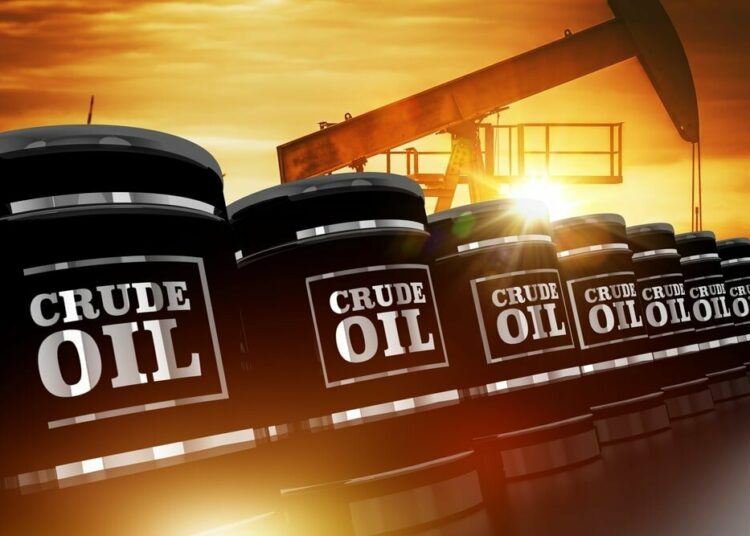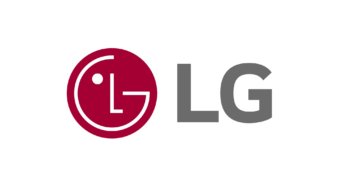Oil prices rose on Wednesday, bouncing back from four-year lows earlier in the session, after U.S. President Donald Trump announced he would further increase tariffs on China but pause the tariff increases he announced last week for most other countries.
Trump authorised a 90-day pause as part of his tariff plan but also raised the tariff rate for China to 125 per cent, effective immediately. The previously announced 104 per cent tariff on China kicked in at 12:01 a.m. EDT (0401 GMT) on Wednesday, Reuters reports.
This is as Nigerian businesses, especially those exposed to exportation business lines, are already weighing up the impact of the tariff, to decide whether to diversify business or continue with the current business plan.
Brent futures were up $1.82, or 2.9 per cent, to $64.64 a barrel at 2:02 p.m. EDT (1802 GMT). U.S. West Texas Intermediate crude futures gained $1.92, or 3.22 per cent, at $61.50. Both contracts had lost about seven per cent earlier in the session before the reversal.
“We’ve reached a turning point in the trade conflict with Trump giving the countries that have shown desire to work on a deal to get rid of tariffs some time to work it out,” said Phil Flynn, senior analyst with Price Futures Group.
“What Trump is doing is putting China out on an economic island all by themselves,” Flynn said.
China announced additional tariffs on U.S. goods, imposing 84 per cent tariffs on U.S. goods from Thursday, in retaliation against President Donald Trump’s tariff policy.
However, the escalating trade war between China and the U.S. continued to pressure oil prices.
The trade conflict is stoking fears of a global recession, said UBS analyst Giovanni Staunovo. “While oil demand has likely not suffered yet, rising concerns of weaker oil demand over the coming months require lower prices to trigger supply adjustments to prevent an oversupplied market,” Staunovo added.
Countermeasures in Canada, a close U.S. ally and major trading partner, also took effect on Wednesday.
Easing up on his harsh tariff plans that was expected to hit 60 countries across the world, President Trump had paused the tariffs that were supposed to take effect yesterday for 90 days as he slammed China harder with a 125 per cent tariff for disrespect.
With the pause in the tariffs, Major stock indexes shot higher, with the Nasdaq last up about 10 per cent, also the value of the U.S. dollar – which had been lower earlier in the day – strengthened against the yen and other currencies after Trump’s announcement.
President Donald Trump also announced an increase in tariff against China to 125 per cent, in a rapidly escalating trade war that has seen China already retaliate with 84 percent tariffs, effective April 10.
Although the pause had provided a respite, many believe that it does not take away the uncertainties that the rumors, declarations and adjustments of tariffs will cause to not only global trade but the global economy.
The International Monetary Fund (IMF) had warned implementing the tariffs poses a “significant risk” to the global economy, as stock markets were hit by a punishing worldwide sell-off by investors.
Managing director of the IMF, Kristalina Georgieva, had urged that the US and its trade partners fight off the temptation of escalating the trade war, whilst noting that the current sluggish outlook of the global economy could be worsened by the tariffs.
“We are still assessing the macroeconomic implications of the announced tariff measures, but they clearly represent a significant risk to the global outlook at a time of sluggish growth. It is important to avoid steps that could further harm the world economy. We appeal to the United States and its trading partners to work constructively to resolve trade tensions and reduce uncertainty,” Georgieva said.
On the African continent, there are strong indications that the aggressive tarring policies of United States of America(USA)’s President, Donald Trump may pose additional economic shocks in Nigeria, especially, to Small and Medium Enterprises(SMEs) and others in exporting business lines.
This is even as the country already grapples with currency devaluation, high inflation, declining oil revenue and high market inflation, hence, the increased cost of exporting to the U.S market may prompt Nigerian businesses to seek alternative markets with friendly tariffs.
While the tariff ensures Americans pay more for imported commodities into their country, there are insinuations too that insurance of import and export commodities and services from Nigeria to U.S may witness further hike in tune with the new tariff policies.
However, another school of thought believes the vulnerability of the Nigerian economy to shocks of the current trade war unleashed by President Trump may be very limited.
Analysts, who spoke to LEADERSHIP, also warned that the added tariff could push Nigeria to diversify its trade partnerships further, strengthening ties with other regions such as the European Union, the United Kingdom, and Asia.
Speaking to LEADERSHIP at the weekend, an investment analyst and an entrepreneur, Adebayo Adeleke, said, the tariff is actually more on American consumers.
Adebayo, who is the group managing director/CEO of Lancelot Ventures Ltd, noted that, “the whole essence of the Tarif is to make our products unattractive and non-competitive. But it could be unattractive and non-competitive if there are local substitutes of such products in America. So, the whole essence of what Trump is doing is to protect the indigenous economy in America. For as long as what we are exporting to America has no local substitute in America, the tariff doesn’t make sense. The tariff is going to punish Americans because they will be forced to pay more. “
Saying the backlash of the tariff is more on Americans, he said: “Americans are going to pay more for any product whose tariff has gone up because a seller will always sell at a profit margin. So, if you say we are going to pay a 14 per cent tariff or so, the seller will add that tariff to the cost of the merchandise. So, it is the American people who are paying for the products that will be paying higher.”
He said, this may also affect insurances of commodities and services exported from Nigeria to the U.S market as well, although, he added that, “however, if you look at the balance of trade, it is tilted towards America than Nigeria. Most other economies are already responding, saying, if we actually import more than what we export and you are putting this tariff on us, we are also going to increase tariffs on products coming from the US Market into our respective countries, because America cannot exist in isolation. So, it is declaring a trade war. “
On whether it will affect importation into Nigeria from the US, he stressed that, “So, if you look at it, what is the quantum in dollar value, of what Nigeria is exporting to America compared to what is being imported into Nigeria from America?
“It will not affect import into Nigeria, unless, we retaliate, saying, we are also going to put tariff on everything coming from America. Declaring it, is to ensure that the two countries are on the same level. You hike tariff on my export, I increase tariff on your import. So, we are even.”
On his part, the national president of Association of Small Business Owners of Nigeria(ASBON), Dr. Femi Egbesola, stated that Trump’s reciprocal tariffs will further haunt Small and Medium Enterprises(SMEs) Export Business and create several bottlenecks to trade.
He said America’s decision to implement a strong and aggressive tariff policy is expected to limit exports to the USA, adding that the policy is anti- progress which could signal more complications to trade.
He mentioned that the new aggressive tariff spreads across Africa, Europe and Asian countries, noting that the move is expected to exploit other countries at the international level and make America achieve a global market rank in trade facilitation.
He advised SMEs and manufacturers in Nigeria to look onward for alternative markets beyond America with friendly tariffs while advising the Africa Continental Free Trade Agreement(AfCFTA) to key into this new policy to make the African market the biggest destination of trade since Africa has the population.
AfCFTA, he said, should gear up efforts to assist African SMEs, entrepreneurs and manufacturers to key into Africa markets which has over one billion in population size, even as he argued that, the new tariff regime could further strain trade relations between both nations, as Nigerian exporters will now face higher costs when accessing the U.S. market.
Earlier, the chief operating officer of InvestData Consulting Limited, Mr. Ambrose Omordion said stakeholders are increasingly concerned about the potential economic impact of a global trade war, particularly with the US imposing new tariffs on imports from countries like China, Canada, and Mexico as well as Africa.
He urged Nigeria to diversify its economy to reduce its reliance on oil exports and mitigate the effects of the trade war. “To stay ahead, Nigerian businesses and policymakers must closely monitor the situation and develop strategies to address potential challenges. This may involve exploring new trade partnerships, diversifying the economy, and implementing policies to support businesses affected by the trade war,” he said.
Moreover, the director/CEO of the Centre for the Promotion of Private Enterprises (CPPE), Dr Muda Yusuf stated that, “Nigeria’s external trade exposure to the United States is averagely about 10 per cent. In 2024, Nigeria’s total merchandise export was valued at 50.4 billion dollars and Nigeria export to the United States the same year was 5.7 billion dollars, which was 11.3 per cent .
“Nigeria’s major exports to the US are crude oil, petroleum gas, and nitrogenous fertiliser. While major US exports to Nigeria are mainly vehicles, wheat, and fuels. Other major export destinations for Nigeria products are Spain, France, Netherlands, and Italy. Oil and gas products account for close to 90 per cent of Nigeria’s exports. This has been the position for about three decades.”
Yusuf however said, the Nigeria economy may be affected indirectly in some other ways, saying, “the Trump administration has practically brought closure to the AGOA trade window. The trade war and the subsequent retaliatory tariffs would trigger inflationary pressures in the United States. This may result in elevated costs for imports into Nigeria from the United States.”
He further said, “we are likely to witness some level of disruptions in global supply chains resulting from the tariff war. This could dampen the global growth outlook and affect crude oil price. A decline in oil price would impact Nigeria’s foreign reserves and revenue.
“The worsening inflation outlook for the US economy may trigger monetary tightening by the US Federal reserve. This may lead to higher interest rates and trigger portfolio flow reversals in emerging economies. This could have implications for the naira exchange rate.
“But there are also opportunities for new trade partners globally. Many countries that are victims of the current trade war would seek new bilateral trade relationships which may create opportunities for Nigeria investors.”
Last Wednesday, U.S. President, Donald Trump had announced a 10 percent baseline tariff on all imports into the U.S. from all countries and higher rates on countries with trade surpluses with the U.S.
The tariffs are expected to boost U.S. manufacturing and punish other countries for what he says are years of unfair trade practices. Some of the highest rates will be levied on smaller countries, with goods from the southern African nation of Lesotho facing 50 percent. Nigeria’s tariff on exported commodities to the US is now 14 percent.
“Our country has been looted, pillaged, raped, plundered by other nations. Taxpayers have been ripped off for more than 50 years. But it is not going to happen anymore.,” Trump said on Wednesday.
The White House officials said they would start charging the 10 per cent tariffs on April 5, with the higher duties starting on April 9. The sweeping tariffs are expected to produce hundreds of billions in annual revenue to fund key projects.





